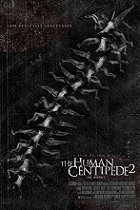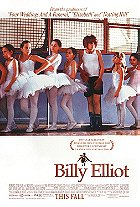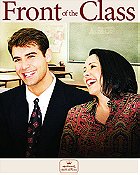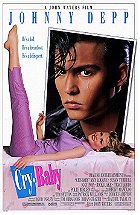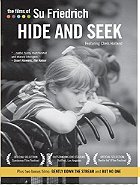That said, "My Sucky Teen Romance," Hagins' fourth feature, is an alright piece of entertainment, scattered with a few laughs. The film gets props for making fun of the obscenely overrated piece of garbage "Twilight," as well as a having some snazzy opening credits. The problem is, Hagins isn't a kid anymore (she and I are the same age, nineteen) and the film's occasional pleasures aren't enough to sustain a full-length feature.
Kate (Elaine Hurt,) is going to college, and decides to visit "Space-Con" before she goes. Accompanied by her best friend Allison (Lauren Lee,) Kate visits the sci-fi convention and runs into her old crush, 'cute grocery store boy' Paul (Patrick Delgado.) Sweet and awkward Paul doesn't know Kate wants him, but even less so realizes that he wants her, and he has competition- Kate's childhood friend Jason (Santiago Dietche) has affections for the confused teenager too.
This would be your average teenage love triangle movie if not for one thing... Paul's a vampire. But typical of vampire stories today, he's a sweet, gentle vampire who doesn't want to kill. However, his maker Vince (Devin Bonnée,) who plays off of the character Edward Cullen in order to entice his hapless female victims, is the token full-blooded, charming, suave vampire- everything that Paul is not. And he's hungry.
The quality of the film over all is somewhat amateurish, and the twist at the beginning is ripped directly from the first episode of "Buffy the Vampire Slayer." The acting is also amateurish, with Tony Vespe as jokester Mark being the strong point in an otherwise weak cast. The two main characters were likable (even if the actors weren't exactly magnetic,) and the special effects and script were generally not too bad.
The problem with the script is the shallowness of Kate's dilemma. When she is turned vampire (an unfortunate mistake on Paul's part,) there isn't any real urgency- the movie trades in the drama of her plight in an attempt to be hip and funny. Unfortunately, the humor isn't all that funny, and Patrick Delgado is not leading man material. His "ball-up-and-fight' scenes are a joke, he can't look scared, he can't look fierce, he can't look... much of anything, except himself.
Strong point- the surprising ending, which resolves the issues at hand in an unexpectedly dark way. Some of the humor was strong, but there wasn't nearly enough of it. Any movie that makes fun of "Twilight" and Twihards gets a pass in my book. The film isn't bad, just underachieving, and Emily Hagins shows potential in her writing and directing prowess. Better luck next time, Emily. I hope your next film, "Grow Up, Tony Philips" starring Tony Vespe exceeds this in content and style.

 Login
Login
 Home
Home 127 Lists
127 Lists 162 Reviews
162 Reviews Collections
Collections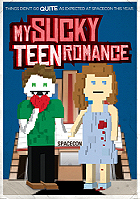
 0 comments,
0 comments, 

